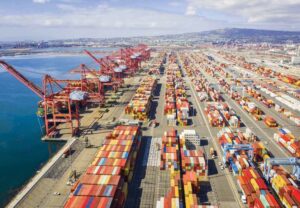 Free Zones across the GCC are increasingly becoming magnets and star attractions for Investors, FDIs
Free Zones across the GCC are increasingly becoming magnets and star attractions for Investors, FDIs
Businesses of all hues and sizes from micro enterprises, SMEs and mega conglomerates are increasingly beating a path to Free Zones across the GCC. These special zones are increasingly becoming popular propositions for attracting investments and professional skills.
The following report from Frost & Sullivan, the global growth consultant firm, puts the GCC Free Zones landscape into perspective and examines the industry ecosystem in the region.
GCC LOGISTICS MARKET OVERVIEW
The logistics industry in the Gulf Cooperation Council (GCC) region is evolving rapidly driven by increasing non-oil sector contribution to GDP, infrastructure development, the emergence of free trade zones and industrial parks, and increased trade cooperation. Governments in the region have undertaken policy measures to reduce their dependency on oil exports by strengthening economic diversification initiatives, tax reforms, improving the investment climate, and increasing investment in food security and encouraging private sector participation. The region’s geographical location on the trans-continental trade has facilitated its focus on the development of logistics hubs for both domestic and transit goods.
Stringent containment measures to arrest the spread of Coronavirus 2019 (COVID-19) have resulted in a sharp decline in economic and trade activities. Some of these measures include the imposition of travel restrictions, border closures, and lockdowns which have impacted freight capacity and flow of goods in the GCC region. The region is anticipated to see a contraction in the first two quarters of 2020. As the curfews and lockdowns are relaxed, trade activities are expected to pick up in the second half of 2020.
During the rebound phase from the pandemic, digital transformation initiatives are likely to be undertaken in the region with the support of government initiatives which call for the application of digital technologies in both government and private sectors. United Arab Emirates (UAE) and Kingdom of Saudi Arabia (KSA) are likely to emerge as front runners in technology adoption in the areas of customs clearance and port terminal operations. The logistics start-up ecosystem has benefited from government initiatives, increased internet penetration, and mobile technologies. Modern warehouses are becoming automated with more use of robotics, and companies are experimenting with the use of autonomous vehicles and drones for efficient and faster last-mile deliveries.
Advancements in digital technologies are expected to influence manned and unmanned connected autonomous transportation as well as connected physical transportation infrastructure driven by the application of smart sensors. In addition, automation, robotics, autonomous vehicles, and Big Data analytics are expected to either transform or disrupt logistics service offerings.






